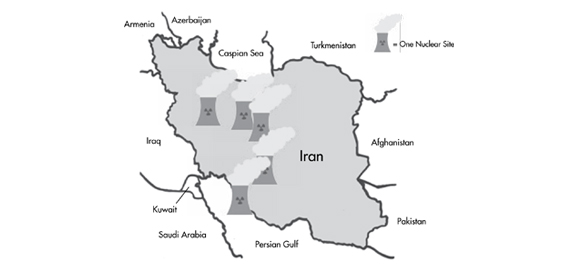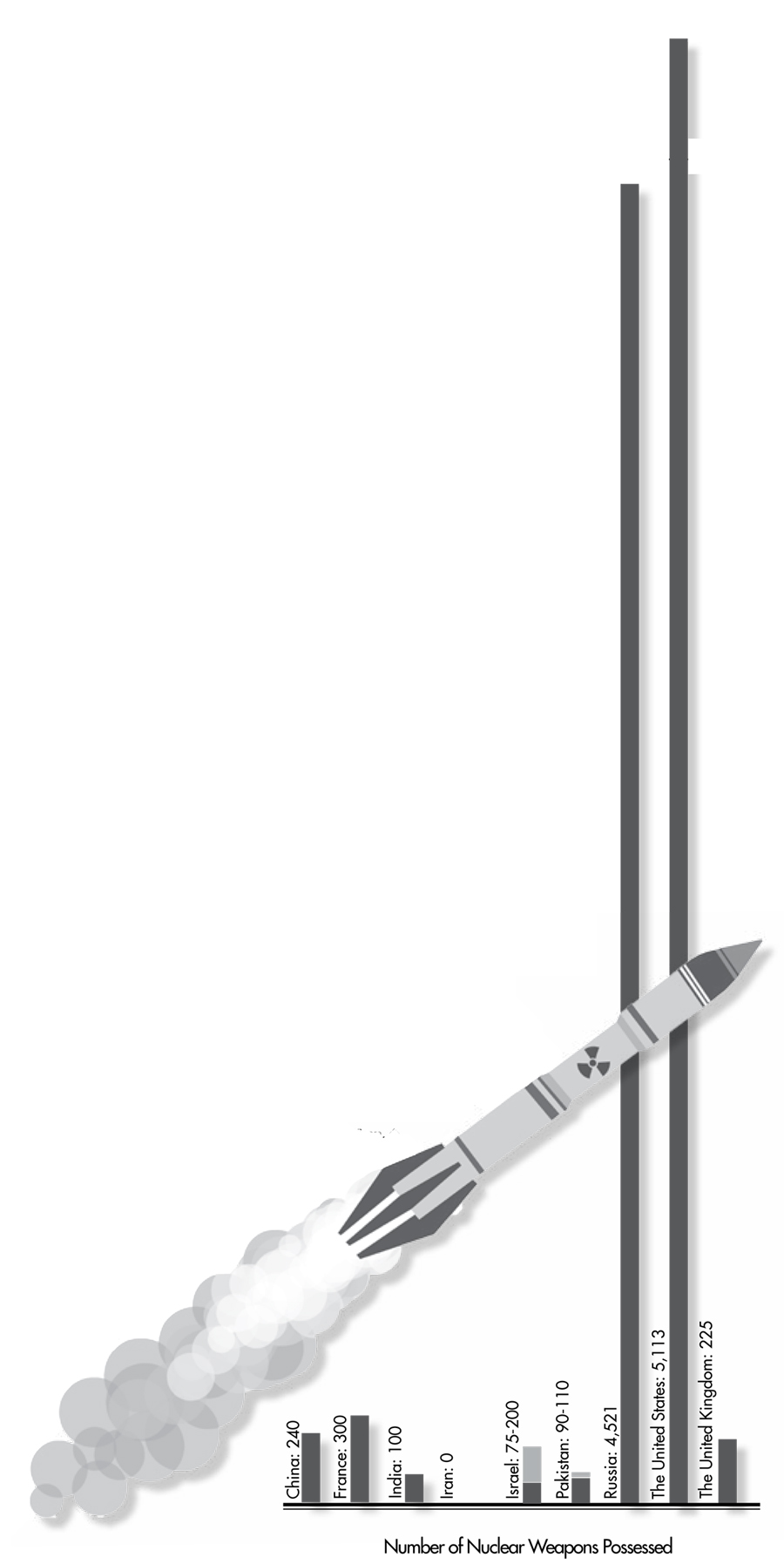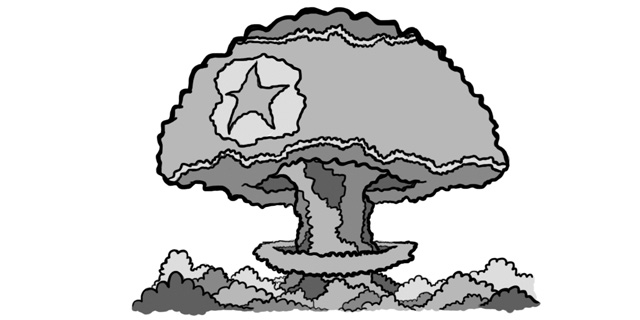
What are Nuclear Weapons, and Who Has Them?

A nuclear weapon is a massive bomb that derives its explosive power from nuclear reactions, which harness the energy released when nuclear particles are split (fission) or merged (fusion). Atomic bombs involve fission; hydrogen bombs involve fusion. “Little Boy,” the atomic bomb dropped on Hiroshima, Japan in 1945, ultimately killed 135,000 people, which is 53% of the city’s pre-raid population.Certain isotopes of the heavy metal uranium, specifically Uranium-235, yield a high amount of concentrated energy in the splitting or merging of its nuclear particles. Weapons-grade uranium is highly enriched, meaning that specific isotope has been increased in the natural composition of uranium. The uranium used for nuclear energy, which provides cheap and efficient power in countries such as France, is typically enriched well below 90%.
China, France, Russia, the United Kingdom, the US, India, Pakistan and Israel all possess functioning nuclear weapons. North Korea claims to possess nuclear weapons, but few experts believe this to be true.
Does Iran have a Nuclear Weapon?
“I have been crystal clear about my position on Iran possessing a nuclear weapon,” President Barack Obama told Israel’s Channel 2 News on Mar. 14, threatening military action should Iran develop a nuclear weapon. “That is a red line for us. It is not only something that would be dangerous for Israel. It would be dangerous for the world.”
Iran has long been a source of frustration for the US, as the Iranian government refuses to make their nuclear program transparent, disregarding the Nuclear Non-Proliferation Treaty (NPT), which aims to prevent the spread of nuclear weapons technology. According to US National Intelligence Director James Clapper, Iran would not be able to produce enough highly-enriched uranium for a bomb without the US detecting it, but on Mar. 14 Obama announced that Iran was “over a year” away from developing a nuclear weapon.
Since 2006 the United Nations Security Council has imposed a variety of sanctions, or economic penalties, to slow Iran’s alleged nuclear activities and hurt their economy so significantly that the government is forced to become more transparent about its nuclear program.
Due to tensions dating back to the Islamic Revolution in 1979, which overthrew Iran’s secular Pahlavi Dynasty, Israel in particular is adamantly against Iran obtaining nuclear weapons. Iran is also broadly connected to a number of America’s and Israel’s enemies, such as the terrorist organizations Hamas and Hezbollah. Although Iran’s economy is faltering under sanctions, it still has one of the strongest, most stable and most industrialized economies in the Middle East.
As members of the Security Council, Russia and China back the sanctions against Iran’s nuclear program; however, in the past China and Russia have been more lax with Iran, since both countries have traditionally had major commercial ties to Iran.
How are the US and Israel Hindering Iran’s Nuclear Program?
The US uses drones, or unmanned aircraft, to monitor Iran’s military and nuclear facilities. On Dec. 4, 2011 Iran took down a US drone flying near Kashmar (which is in northeast Iran, towards the border with Afghanistan); Obama asked Iran to return it, but Iranian officials refused to return the plane. A year later, in December of 2012, Iran captured another US drone over the Persian Gulf, in what Pentagon officials claim is international airspace.
In 2010 the US and Israel led a massive attack on Iran’s enrichment efforts at a nuclear plant called Busehr using Stuxnet, a computer worm designed to take control of industrial facilities. Obama secretly ordered the cyber attacks, but something went wrong with the system, allowing the worm to escape on the Internet and exposing the plot. This attack was the first major attack of its kind, and its sophistication opened the world’s eyes to the importance of cyber warfare.
In 2011 and 2012, Iranian officials accused Israel and the US of having attempted to assassinate five separate Iranian nuclear scientists: four of the attacks were successful. The US denied involvement, and Israel maintained its policy of ambiguity. Iran named the assassinations acts of terror, and intelligence suggests that Israel is working with the People’s Mujahedin of Iran, a terrorist group that works towards the deposition of the Islamic Republic of Iran.












